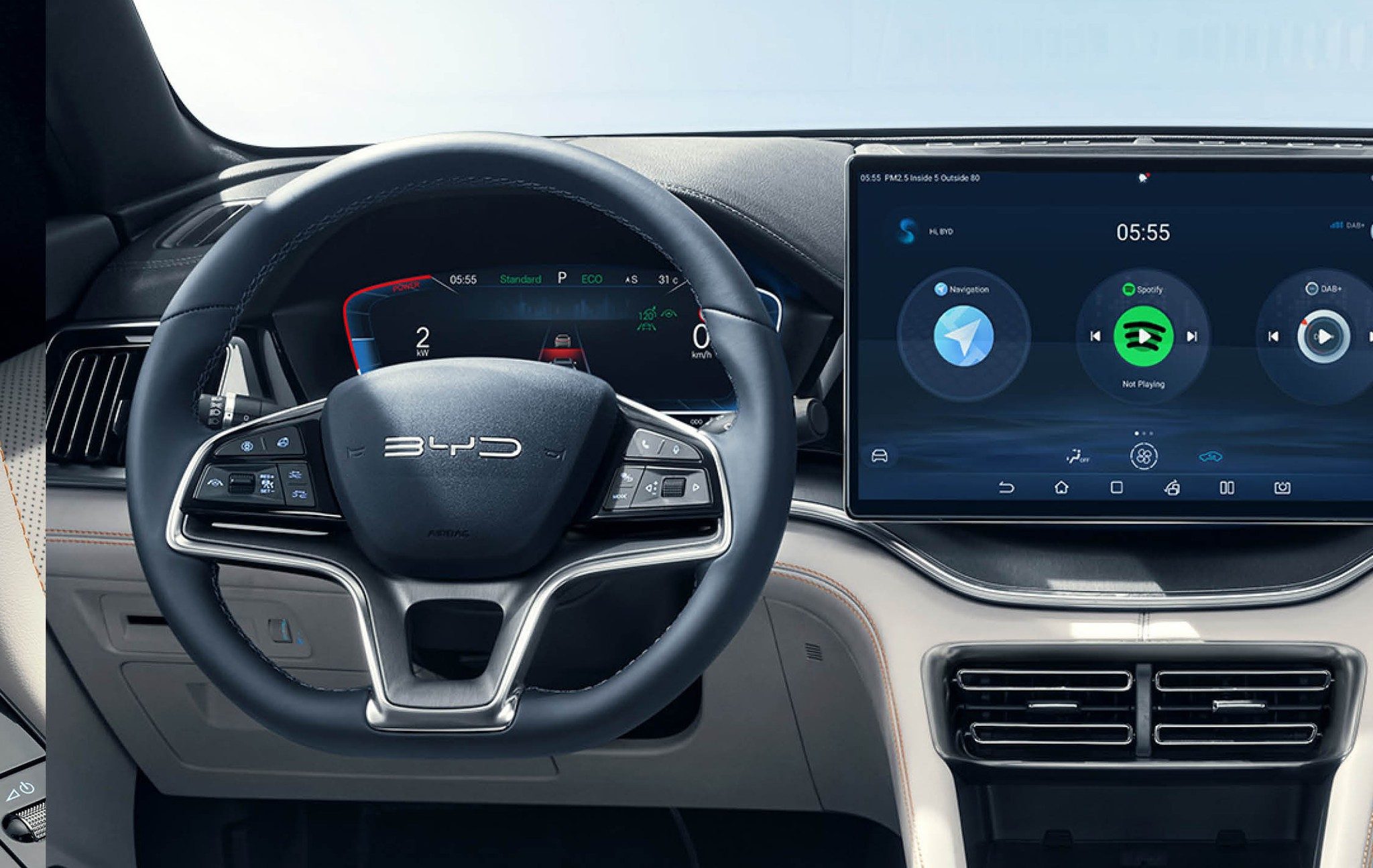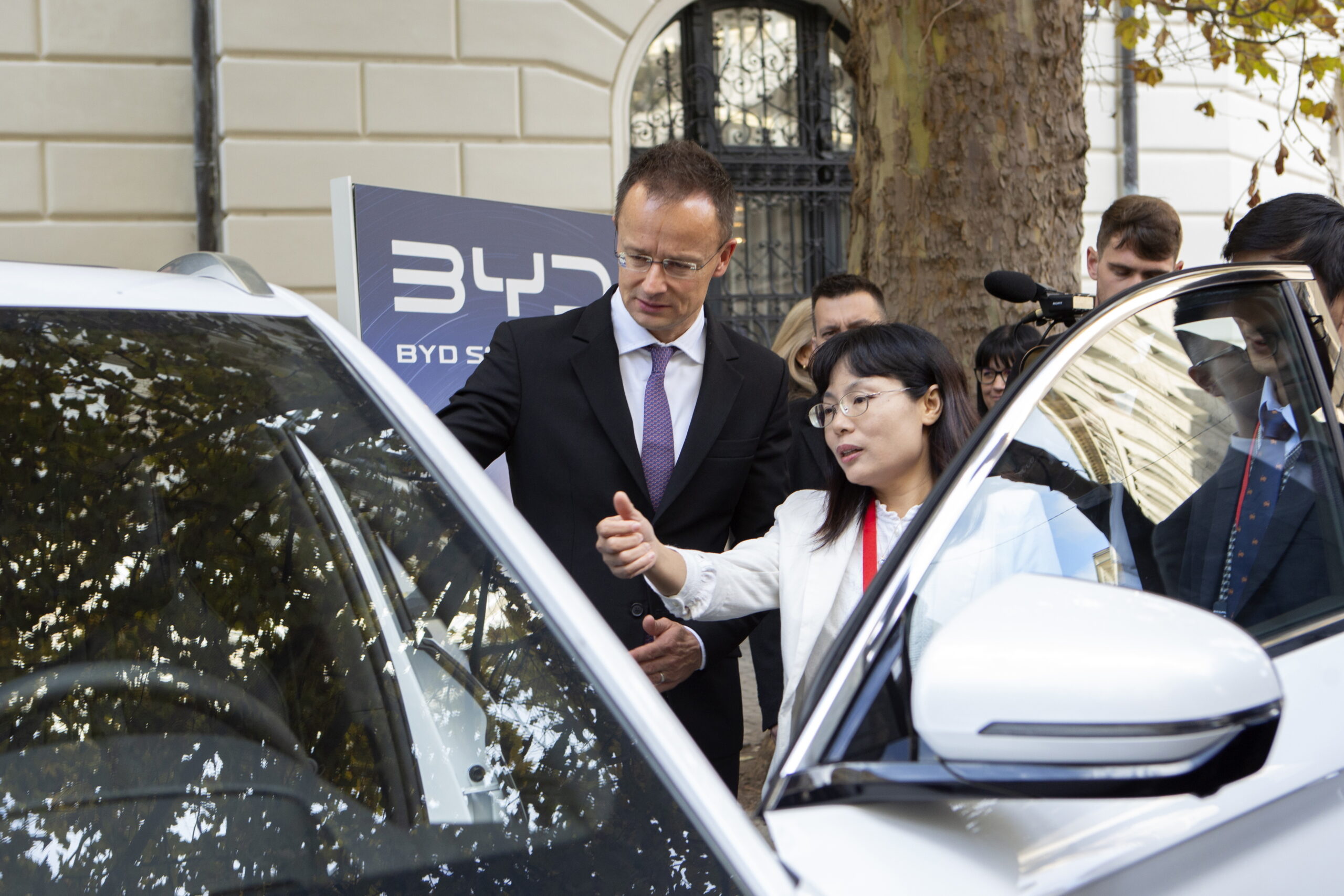
Manufacturing will start gradually, with a full ramp-up expected in three to four years.Continue reading

The policy of economic neutrality has been put into practice in Hungary, where cooperation between German and Chinese companies is unhindered, Minister of Foreign Affairs and Trade Péter Szijjártó said at a suppliers forum for Chinese EV giant BYD in Budapest on Tuesday.
Speaking at the event held at the headquarters of the Hungarian Investment Promotion Agency (HIPA), Mr. Szijjártó pointed out that Hungary is home to three German premium car manufacturers, while five of the ten largest battery manufacturers in the East are also present in Hungary.
Hungary has become a meeting point for Eastern and Western companies in the middle of Europe, bringing together the Eastern and Western bastions of the revolutionary automotive industry,”
he pointed out.
“Economic neutrality is becoming a reality in Hungary, where German and Chinese companies can cooperate without issues,” said FM Péter Szijjártó at the @BYDCompany suppliers’ forum in Budapest. He noted that Hungary hosts all three German premium car manufacturers, alongside… pic.twitter.com/BaGg1CywH1
— Zoltan Kovacs (@zoltanspox) October 15, 2024
The Minister cited the example of the large Chinese battery factory built in Debrecen (eastern Hungary) next to the big German car factory, while one of the main aspects of the Mercedes investment in Kecskemét (central Hungary) was that the Chinese battery factory that supplies the batteries to the German company is being built in Hungary.
He added that
BYD’s plant in Szeged was an “unprecedented opportunity” for Hungarian suppliers to join the electromobility revolution.
The politician recalled that from the middle of the next decade, only cars and light commercial vehicles that do not emit carbon dioxide will be sold in Europe. He added that the consequence of this would be a radical surge in investment in electric cars, and that the fight for these would be “more fierce than ever before,” with European countries using both overt and less overt means to secure these investments.
As he said,
this transformation is of particular importance for the Hungarian economy because the automotive industry has become the dominant industry in the domestic economy as a result of the efforts of the past decade.
Mr. Szijjártó noted that over half a million cars were produced in Hungary last year, and if the three major investments underway – Mercedes-Benz‘s Kecskemét plant, BMW’s Debrecen construction site, and BYD’s Szeged investment – “come to fruition,” Hungary will produce one million cars, which is a feat only five countries in Europe can achieve.
We cannot have a more modest objective than to become one of the strongest pillars of the European automotive industry in this new automotive era (…) and to represent the most competitive offer in Europe in the ecosystem around electromobility (…),”
he stated.
István Joó, CEO of HIPA, said that the forum will feature 112 companies from BYD’s seven committees, all of which have proven themselves in their respective fields and have a long history of working with leading European car manufacturers.

István Joó, CEO of the National Investment Promotion Agency (L) and Gong Tao, Chinese Ambassador to Hungary. Photo: MTI/Kocsis Zoltán
According to a HIPA statement, BYD’s Global Purchasing Director James Zhuang pointed out that BYD had launched their electric cars in 77 countries by May this year, although they only decided to enter the global market in May 2021. The one millionth car sold was reached after 13 years, with the two millionth the following year and the three millionth six months later. They are now over seven million, the first in the market to cross that mark, he said.
Via MTI, Featured image: MTI/Kocsis Zoltán